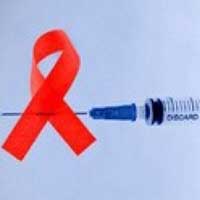In first human study, new antibody therapy shows promise in suppressing HIV infection. The new study, conducted in Michel Nussenzweig’s Laboratory of Molecular Immunology, finds that administration of a potent antibody, called 3BNC117, can catch HIV off guard and reduce viral loads.
The work brings fresh optimism to the field of HIV immunotherapy and suggests new strategies for fighting or even preventing HIV infection.
In a person infected with HIV, there is an ongoing arms race between the virus and the body’s immune system. Even as the body produces new antibodies that target the virus, the virus is constantly mutating to escape, managing to stay just a few steps ahead.
3BNC117 belongs to a new generation of broadly neutralizing antibodies that potently fight a wide range of HIV strains.
“What’s special about these antibodies is that they have activity against over 80 percent of HIV strains and they are extremely potent,” says Marina Caskey, assistant professor of clinical investigation in the Nussenzweig lab and co-first author of the study.
3BN117, which was originally isolated by Johannes Scheid in the Nussenzweig laboratory, targets the CD4 binding site of the HIV envelope, and the CD4 receptor is the primary site of attachment of HIV to host cells, 3BNC117 shows activity against 195 out of 237 HIV strains.
In the new study, uninfected and HIV-infected individuals were intravenously given a single dose of the antibody and monitored for 56 days. At the highest dosage level tested in the study, 30 milligrams per kilogram of weight, all eight infected individuals treated showed up to 300-fold decreases in the amount of virus measured in their blood, with most reaching their lowest viral load one week after treatment.
This is the first time that the new generation of HIV antibodies has been tested in humans.
Not only was a single dose of 3BN117 well tolerated and effective in temporarily reducing viral loads, in some individuals it remained active in the body for a long time.
In half of the individuals receiving the highest dose, viral loads remained below starting levels even at the end of the 8-week study period and resistance to 3BNC117 did not occur.
Besides the possibility of treatment, the study also raises hopes for an HIV vaccine. If researchers can induce an uninfected person’s immune system to generate potent antibodies such as 3BNC117, it might be enough to block the HIV infection before it can be established.
Source: Rockefeller University, USA

